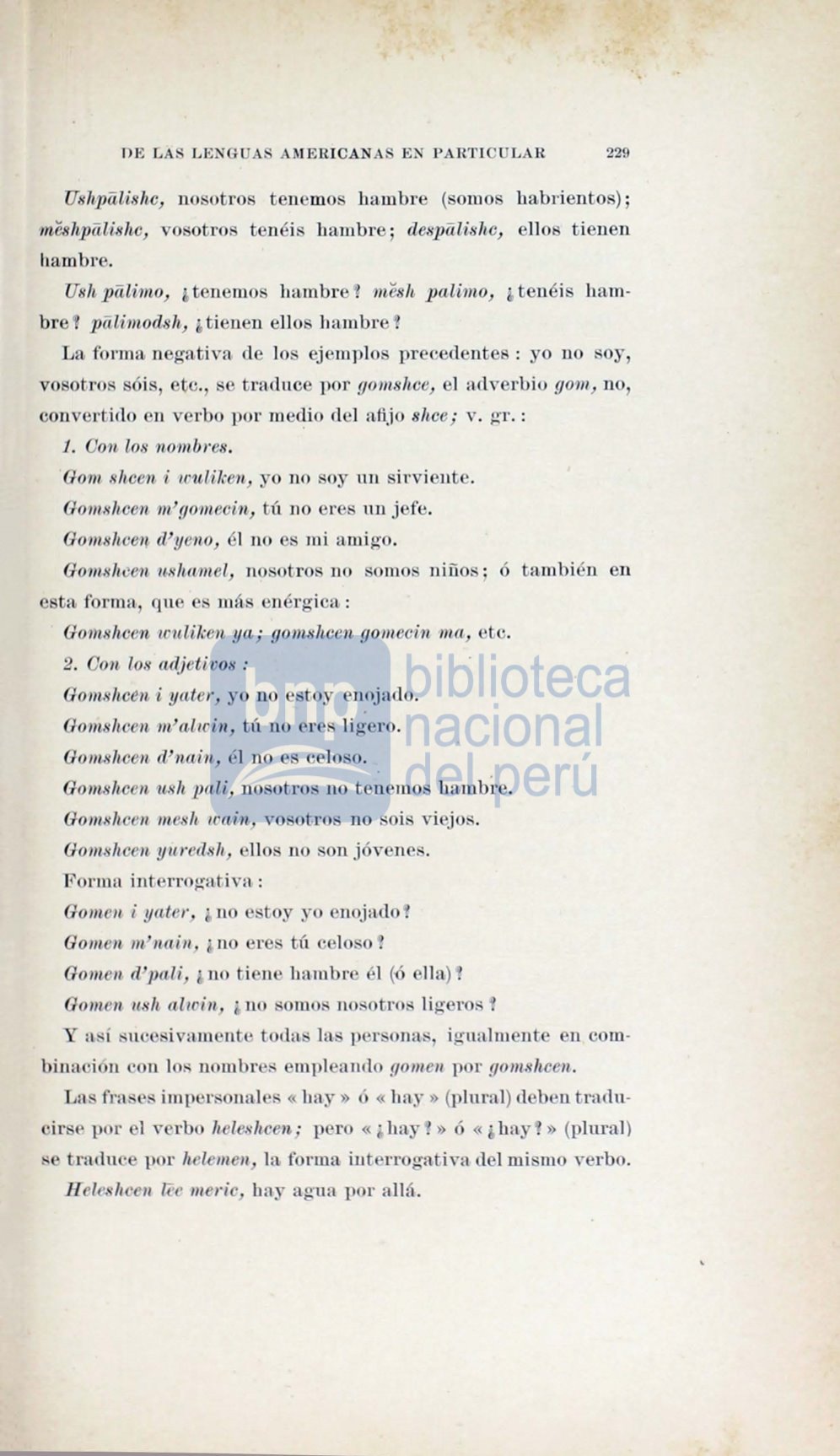

OE LA
L ENG A AMERICANA EN PAR'l'IC LAR
229
Ushpalishc,
nosotros tenemos barobre (somos babrientos);
m'éshpalishc,
vo ·otro
tenéis hambre;
despalislw,
ello
tienen
hambre.
Ushpalimo,
¡, tenemo
hambre'I
mesh 1Ja/!imo,
¡,tenéis ham–
bre~
palvmodsh,
¡,tienen ellos hambre?
La forma negativa ele lo ejemplo precedentes : yo no soy,
vo otro · ói , etc., se traduce por
gomshce,
el adverbio
gom,
no,
convertirlo
11
verbo por medio del afijo
shce;
v.
gT.:
1. Oon los nombres.
Gorn shcen
i
1t•i¿/,ilcen,
yo no oy un sil'vieute.
Go111shcen m'goineciii,
tú
110
eres un jefe.
Gomshceit d'yeno,
1
no es mi amig·o.
Gomshv(}n 1is/uumel,
no otro no somos niños ; ó también en
esta fo rma, que e má,s enérgica :
Gomshcen wnlik n ya; gomshcen gomecin
11w.,
etc.
2.
Oon los adjeti'Vos :
Gomshcen
i
yctter,
yo no estoy enojado.
Goin ·hcen m'alw'i11,
tú
110
eres lig:ero.
Go1nshcen d'nain,
él no e celo o. .
Goni ·lwen iish
pa.li,no otro no tenemo
lmmbi'e.
Goinslwcn
mesh
wctin,
vosotros no soi viejo, .
Gom ·hcen yi¿redsh,
ello no son jóvenes.
Forma int l't'og·ativi1 :
Gome11
i
y(¿t r,
~ no
estoy yo enojado?
Gomen 1n nai11,
t
no
re
tú
lo o?
Gom
11
el
p(t/i,
no ti ne ha.mbr él ( ella)?
Gomen
ush
alwin
~
uo 'Omos no' otro
lig
ros
Y
~tsí
su
i.vmn nte toda · la per ona-
igualm nt
n com–
binacion con los nombres empleando
r10111e11
por
_qom.~hcen.
Ln
fra ' es imper, onal s « hay»
ó
« hay >) (plural) el ben tradu–
ir
e por el verbo
h les/icen ·
pero
«
·hay
t
))
ó
«
hayi
>)
(plural)
se trad ne por
hele111e11
la forma iuterrogativa ele! mi mo v rbo.
JTelc.~hc
11
lel'
meric
lrn. ag·ua por
:illn.
















